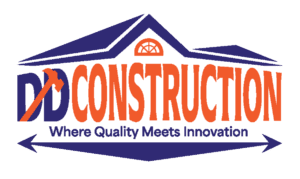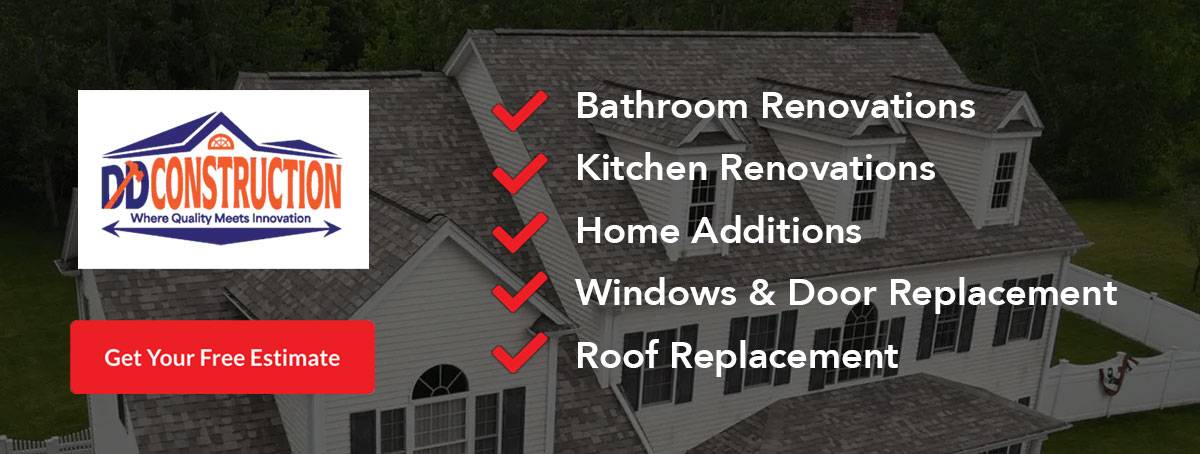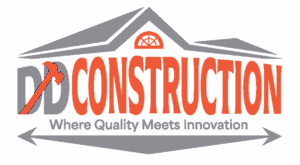The True Cost of Hiring a Roof Contractor in Massachusetts: What Homeowners Need to Know
When it comes to home improvements, roofing is an essential and significant upgrade that influences not only the aesthetic appeal of a house but also its structural integrity, energy efficiency, and long-term value. For homeowners in Massachusetts, understanding the true cost of hiring a roof contractor is crucial in planning a budget-friendly, high-quality roofing project. A trusted resource for guidance is ddconstructionma.com, which offers insights on material and labor expenses as well as hidden fees. This article provides a deep dive into the various elements that contribute to roofing costs, including material and labor expenses, hidden fees, and the impact of local weather and building codes. By shedding light on the financial details and potential pitfalls associated with roofing services, homeowners can approach their projects armed with knowledge and confidence.
Massachusetts is known for its unpredictable weather, ranging from heavy snowfall in the winter to humid summers. These conditions demand durable and resilient roofing materials that not only withstand the elements but also fully comply with the state’s strict building codes. Moreover, when selecting a roofer, factors such as warranty quality, contractor experience, and transparent pricing become absolutely crucial. Homeowners must be diligent in evaluating different quotes, ensuring that every detail is spelled out, from permits and inspection fees to potential hidden costs that may lead to unexpected budget overruns.
In this comprehensive guide, the costs associated with roofing projects are unpacked methodically by delving into the initial material and labor expenses, the indirect and hidden fees that can significantly boost the final cost, and the ways in which Massachusetts’ stringent building codes and weather challenges add to the pricing structure. Additionally, the article examines how a contractor’s warranty and local expertise can affect the longevity and quality of the roof. The discussion is further enhanced with detailed lists and tables that compare various cost elements, empowering homeowners to make informed decisions.
Ultimately, this guide is designed to act as a trusted resource for anyone who is considering hiring a roof contractor in Massachusetts. It outlines the common price ranges, goes beyond the sticker price to expose ancillary fees, and offers strategic advice on how to compare multiple quotes and assess the quality of services. With this knowledge, homeowners can achieve a balance between cost efficiency and long-lasting roof performance while avoiding common pitfalls. The following sections break down each of these cost components in detail, ensuring that every aspect of the roofing process is covered, from the initial consultation to the final installation and future maintenance.
What Are the Typical Costs of Hiring a Roof Contractor in Massachusetts?
Understanding the typical costs of hiring a roof contractor in Massachusetts is the foundation of planning any roofing project. The overall expenses depend on a variety of factors, including the size of the roof, the materials used, the complexity of the installation, and the specific requirements dictated by local codes. In general, the two primary cost components include materials and labor.
How Much Do Materials and Labor Usually Cost?
The first question that arises in any roofing project is the cost breakdown between materials and labor. Typically, a roofing project may see material expenses accounting for 50% to 70% of the overall cost. Materials range from common asphalt shingles to premium slate or metal roofing, each coming with its own price tag. Asphalt shingles, for instance, are among the most popular due to their balance of cost and durability, usually priced between $100 and $150 per square (a square equals 100 square feet). In contrast, high-end materials such as slate or clay tiles can significantly raise the cost.
Labor, on the other hand, involves the installation process, which includes the removal of old roofing, deck repairs, installation of the new roofing system, and finishing details such as flashing and ventilation. Labor rates in Massachusetts can be higher than the national average due to the local market and the stringent safety standards set by the state. On average, labor might range from $150 to $300 per square, depending on the complexity of the roof design and the required safety measures.
The precise division between material and labor costs varies based on regional price fluctuations and the specific project scope. For example, a simple roof replacement might have a different ratio compared to installing a completely new roof with upgrades for enhanced energy efficiency. In-depth quotes usually provide a clear breakdown, enabling homeowners to compare and negotiate expenses effectively.
An illustrative table below reflects common cost ranges for different roofing materials in Massachusetts:
| Roofing Material | Average Material Cost Per Square | Average Labor Cost Per Square | Total Estimated Cost Per Square |
|---|---|---|---|
| Asphalt Shingles | $100 – $150 | $150 – $250 | $250 – $400 |
| Metal Roofing | $200 – $350 | $150 – $300 | $350 – $650 |
| Slate | $500 – $1,000 | $200 – $350 | $700 – $1,350 |
| Clay/Concrete Tiles | $300 – $600 | $150 – $300 | $450 – $900 |
| Wood Shingles | $400 – $800 | $200 – $350 | $600 – $1,150 |
| Synthetic Roofing | $150 – $250 | $150 – $250 | $300 – $500 |
| Modified Bitumen | $250 – $400 | $200 – $300 | $450 – $700 |
This breakdown provides a streamlined view of how materials and labor can impact roofing projects and highlights the value of obtaining detailed, itemized quotes from contractors.
What Are the Average Prices for Roof Repair vs. Replacement?
For Massachusetts homeowners, distinguishing between roof repair and roof replacement costs is essential. Roof repair costs can be significantly lower than full replacements. Minor repairs, such as fixing a few shingles or addressing localized leaks, typically start at around $300 and can go up to $1,500, depending on the extent of the damage. The scale of repair is largely determined by factors such as the area affected, the severity of the wear, and the type of material required for the repair work.
Contrastingly, a full roof replacement is an extensive project that can significantly impact the home’s overall budget. Replacement costs, based on the table provided earlier, vary widely with material selection. With an average roof size of 1,500 to 2,500 square feet for a typical Massachusetts home, homeowners can expect to invest anywhere from $7,500 to over $20,000 for a complete roof replacement. In addition to the direct labor and materials costs, full replacements may also include extra charges for disposal of old roofing, structural repairs, and upgrade options such as improved ventilation systems or energy-efficient materials.
The decision between repair and replacement is usually influenced by the age and condition of the existing roof. For example, a roof that has been in place for over 20 years and showing signs of extensive weather damage may be more cost-effective to replace entirely rather than undergoing repeated repairs. Contractors typically provide a thorough inspection, which helps in determining the most financially viable and lasting solution.
How Do Roof Types and Materials Affect Pricing?
Roofing costs in Massachusetts are not only determined by labor and material breakdowns but also by the specific types of roofs and the materials chosen. Different roofs have distinct installation requirements and lifespans. For instance, flat roofs commonly seen in commercial properties or modern residential designs have different cost structures compared to pitched roofs. Flat roof systems, which are mostly used for commercial applications, often require specialized materials like modified bitumen or single-ply membranes, which may be more expensive due to the need for additional waterproofing layers.
In residential settings, pitched roofs offer varied material choices—from economical asphalt shingles to high-end slate and metal options. Each material comes with its own set of advantages and durability metrics. Asphalt shingles are popular for their readiness to install and lower cost, but they typically have a lifespan of 20 to 30 years. Metal roofs, while more expensive upfront, can last upwards of 50 years with proper maintenance and resist harsh weather conditions better, making them a long-term investment. Slate, renowned for its durability and aesthetic appeal, is significantly more costly but is prized for its longevity and classic look.
Additional factors that influence pricing include the roof’s complexity, such as the number of angles, valleys, dormers, and penetrations like vents or skylights. Complex roof designs require more time and skill during installation, resulting in higher labor costs. Furthermore, high-quality underlayment, insulation, and moisture barriers used in conjunction with the primary roofing material can also raise the project cost. These elements are critical in Massachusetts, where fluctuating temperatures, precipitation, and humidity levels challenge roof integrity.
In summary, when considering roof type and material, homeowners must weigh the upfront costs against the potential long-term benefits, such as increased durability, energy efficiency, and reduced maintenance needs. Detailed consultations and cost estimates from reliable contractors are essential for aligning the chosen roofing solution with both budget and performance expectations.
What Hidden and Indirect Costs Should You Expect When Hiring a Roof Contractor?

In addition to the standard materials and labor costs, Massachusetts homeowners should be aware of various hidden and indirect expenses that often creep into a roofing project. These can significantly impact the final cost if not identified and planned for in the initial budgeting phase.
Why Are Permits and Inspection Fees Important in Massachusetts?
Permits and inspection fees are critical components of Massachusetts roofing projects. Most municipalities in the state have strict building codes that require permits before starting any roofing work. The process ensures that the project complies with local regulations designed to maintain structural safety and uniformity across the community. Permit costs can vary depending on the project’s size and scope but typically range between $100 and $500. Additionally, periodic inspections during and after the installation process may incur extra fees. These inspections verify that the roofing work meets all safety standards and building codes. Failing to secure proper permits can lead to fines, additional remediation costs, or even forced removal of improperly installed roofing. Therefore, homeowners must account for these expenses upfront and choose contractors who clearly itemize permit and inspection fees in their estimates.
How Does Insurance Influence the Total Project Cost?
Insurance is another often-overlooked aspect that can substantially increase the overall cost of a roofing project. Contractors must carry liability insurance and workers’ compensation, which can have a direct impact on pricing. Insurance provides financial protection against potential accidents and damages that might occur during the project. Reputable roofers in Massachusetts ensure they are fully insured, which contributes to a slight premium in their overall cost estimates. Homeowners should request proof of insurance to ensure that claims will be covered if any incidents occur. In some cases, insurance costs can also include fees for additional coverage if the project is extensive or if the roof structure is particularly complex. Thus, while it may seem like an extra cost, investing in insured contractors can save homeowners significant financial headaches in the long run.
What Are Common Hidden Fees and How Can You Avoid Them?
Several hidden fees can surface during the roofing process if homeowners are not vigilant. These may include charges for the removal and disposal of old roofing materials, unexpected repair work on underlying structures like the decking or fascia, travel fees for contractors coming from out of state, and even additional labor costs if the job extends beyond the estimated timeframe. Homeowners should always seek a detailed, itemized quote that clearly outlines all potential charges. Asking for references and reading customer reviews can reveal whether a contractor has a history of adding unexpected costs. Additionally, contract terms should include clauses that describe the circumstances under which additional fees may be justified. By maintaining clear communication and demanding transparency up front, homeowners can avoid unpleasant surprises and ensure that the final project cost remains within budget.
How Does Massachusetts Weather and Building Codes Impact Roofing Costs?
Massachusetts poses a unique set of challenges for roofing projects due to its variable weather conditions and stringent building codes. These factors are fundamental in determining the type of materials used and the construction practices adopted, both of which influence the overall project cost. From snow loads in the winter to the effects of high humidity in the summer, roofing projects must be designed to withstand a range of climatic extremes.
What Weather Challenges Affect Roof Durability and Cost?
The harsh weather conditions in Massachusetts require roof contractors to design and install roofs that can endure significant snow loads, heavy rains, and high winds. For instance, the weight of accumulated snow in winter can place tremendous pressure on the roof structure, necessitating the use of extra reinforcement or specialized roofing materials such as metal or slate that can offer enhanced protection. Additionally, the rapid freeze-thaw cycles can cause shingles to crack and deteriorate more quickly than in milder climates. These weather-related factors not only influence the choice of materials but also increase labor costs, as contractors must implement additional safety measures and installation techniques to ensure durability under extreme conditions. As a result, the final cost of a roofing project in Massachusetts often reflects these added weather-resilient design features.
How Do Massachusetts Building Codes and Permit Requirements Affect Pricing?
Massachusetts building codes are among the most rigorous in the country. These regulations are designed to enhance safety, ensure energy efficiency, and promote sustainable building practices. For roof installations, adherence to these codes means that contractors must use approved materials, follow specified installation procedures, and sometimes include additional components such as improved underlayment systems, energy-efficient insulation, and proper ventilation. Such compliance not only adds to the material costs but also requires more skilled labor, which is reflected in higher project prices. Furthermore, the permit process itself adds fees and bureaucratic steps that can extend the project timeline, thus indirectly increasing labor costs. Homeowners should be prepared to absorb these additional expenses as part of a comprehensive roofing project that meets all local safety and efficiency standards.
What Are the Energy Efficiency Considerations That Influence Cost?
Energy efficiency is an increasingly important factor in roofing, driven by the desire to reduce heating and cooling expenses, and to comply with environmental regulations. Massachusetts has specific mandates aimed at ensuring that new roofs contribute to a building’s overall energy performance. Installing energy-efficient roofing materials, such as reflective shingles or high-quality underlayments, can help reduce energy costs by improving insulation and reducing heat gain during the summer months. Although these materials might have a higher upfront cost, they provide long-term savings on utility bills. Furthermore, additional features such as improved ventilation systems not only help in temperature regulation but also extend the life of the roof, reducing maintenance expenses over time. The integration of these technologies, while increasing initial costs, ultimately contributes to a more sustainable and cost-effective roofing system that aligns with both energy efficiency standards and long-term savings.
How Can You Evaluate the Quality and Warranty When Hiring a Roof Contractor?

Evaluating the quality and warranty provided by a roof contractor is critical in ensuring that a roofing project delivers value over the long term. Homeowners need to assess not just the immediate costs but also the quality of workmanship, the longevity of the materials installed, and the warranty terms that come with the project. A well-constructed roof should provide lasting performance, minimal maintenance, and reliable protection against weather extremes.
What Should You Look for in a Roofing Contractor’s Warranty?
A warranty is one of the most important indicators of a contractor’s confidence in their work. Roofing warranties in Massachusetts can offer coverage on both labor and materials, ensuring that if any defects occur, repairs or replacements will be covered at no additional cost. Homeowners should look for warranties that clearly state the coverage period, typically ranging from 10 to 50 years depending on the materials used. A good warranty will also include provisions for labor, which is essential if installation issues arise. Some contractors offer extended warranties if higher-end materials are used or if the roof design incorporates complex elements. It is important to thoroughly review the warranty terms, noting any exclusions or conditions that might require additional maintenance. A warranty backed by a reputable roofing company with strong local references is generally a good sign of quality and reliability.
How Does Contractor Experience Affect Project Cost and Quality?
Experience plays a pivotal role in both the cost and the quality of roofing projects. Contractors with decades of experience in Massachusetts bring invaluable expertise in dealing with the state’s unique weather challenges, building codes, and regional material availability. Seasoned roofers are more likely to provide accurate cost estimates, efficient project management, and high-quality workmanship that reduces the likelihood of future repairs. Their reputation and track record often allow them to charge a premium, but this is typically justified by the increased durability, aesthetic appeal, and overall performance of the finished roof. In contrast, less experienced contractors might offer lower bids but can potentially compromise on quality, leading to higher long-term maintenance costs. Homeowners should conduct thorough research, asking for references and reviewing past projects to ensure that the contractor’s experience aligns with the project’s needs.
Why Is Transparent Pricing Essential for Trustworthy Roofing Services?
Transparent pricing is a cornerstone of trustworthy roofing services. Homeowners must receive detailed, itemized estimates that clearly delineate the costs associated with materials, labor, permits, disposal, and any potential extras. Lack of transparency can lead to unexpected expenses that strain budgets and undermine trust between the homeowner and contractor. A reliable roofing contractor in Massachusetts will provide a detailed contract that includes every potential cost, along with a clear timeline and payment schedule. This helps avoid disputes and ensures that both parties are aligned on which services are included and what might incur extra charges. Transparent pricing, combined with solid warranties and verified insurance coverage, signals that a contractor is both professional and committed to delivering quality work.
What Are the Best Practices for Comparing Roof Contractor Quotes in Massachusetts?
When planning a roofing project, comparing quotes from multiple contractors is an essential step towards ensuring both quality and cost efficiency. With a myriad of factors influencing roof costs, from materials to local permit fees, a thorough comparison allows homeowners to identify the most competitive and reliable options. This process involves obtaining detailed estimates, asking critical questions, and leveraging online resources to gauge market rates.
How Do You Request and Compare Detailed Cost Estimates?
The first step in comparing roof contractor quotes is to request detailed, itemized cost estimates from each potential vendor. These estimates should include a breakdown of material costs, labor, permit fees, disposal charges, and any applicable taxes or additional fees. Homeowners are advised to provide contractors with a comprehensive description of the project and request that they outline every aspect of the work required. Comparing detailed estimates side by side can help identify disparities and potential red flags. Maintaining a spreadsheet that lists each line item along with the associated costs can prove invaluable. This methodical approach ensures that nothing is overlooked and that the final decision is based on transparent, comparable data.
What Questions Should You Ask to Understand Each Quote Fully?
Understanding the nuances of each quote is critical for making an informed decision. Homeowners should ask several targeted questions, such as: – Are there any potential additional charges not included in this estimate? – What materials are being used, and are there premium or standard options available? – How is labor cost determined, and does it cover potential changes in project scope? – Does this quote include disposal fees for the old roof? – What is the warranty on both materials and labor? – How will unforeseen issues, like structural repairs, be handled? These inquiries help ensure that every aspect of the quote is transparent and that the contractor is upfront about possible future expenses.
How Can You Use Online Tools and Resources to Estimate Roofing Costs?
In today’s digital age, numerous online tools and resources are available to help homeowners estimate roofing costs. Websites dedicated to home improvement, local contractor review sites, and cost estimator tools can provide valuable benchmarks and average pricing data specific to Massachusetts. These platforms often use regional data to offer accurate cost ranges based on roof size, material type, and labor rates. By inputting project-specific details, homeowners get an initial estimate that serves as a baseline against which they can compare individual contractor quotes. Using these tools not only simplifies the comparison process but also empowers homeowners to negotiate better terms by having market data at hand.
Below is a comparative table summarizing important areas to consider when comparing roofing quotes:
| Cost Component | Description | Typical Range in MA | Key Considerations |
|---|---|---|---|
| Materials | Roofing shingles, metal, slate, etc. | $100 – $1,000+ per square | Quality, durability, energy efficiency |
| Labor | Installation, removal, disposal | $150 – $350 per square | Complexity of roof design, contractor expertise |
| Permits and Fees | Building permits, inspections, disposal fees | $100 – $500 | Local regulations, project scope |
| Warranty | Coverage for materials and workmanship | 10 – 50 years | Scope of coverage, contractor reputation |
| Additional Repairs | Structural repair or insulation installation | Varies widely | Extent of damage, underlying structure condition |
| Overhead Charges | Insurance, administration costs | Included in total estimate | Contractor’s operational costs |
This table serves as a quick reference to understand the key factors that contribute to overall roofing costs, enabling homeowners to assess contractor quotes with a data-driven perspective.
What Long-Term Value Should You Consider Beyond Initial Roofing Costs?

When considering a roofing project, the initial installation cost is just one part of the equation. Homeowners should also evaluate the long-term value of their investment, taking into account factors such as roof durability, potential energy savings, and the benefits of ongoing maintenance and warranty services. A quality roof not only protects the home but also enhances its curb appeal and resale value.
How Does Roof Durability Affect Future Repair and Replacement Costs?
One of the most critical long-term value propositions of a new roof is its durability. A durable roof minimizes the frequency and cost of repairs over its lifespan. For instance, roofs made with premium materials like metal or slate often have longer lifespans — sometimes lasting 50 years or more — compared to standard asphalt shingles, which typically last 20 to 30 years. Although the upfront costs for more durable materials are higher, these roofs reduce the likelihood of frequent repairs, safeguarding the homeowner’s investment and reducing total lifetime maintenance expenses. Additionally, properly installed roofs that meet Massachusetts’ strict building codes are less likely to incur unexpected costs resulting from premature deterioration or weather-related damage.
What Energy Savings Can a Quality Roof Provide in Massachusetts?
Investing in a quality roof with energy-efficient features can lead to considerable energy savings over time. Modern roofing systems designed for enhanced thermal insulation and reflectivity help regulate indoor temperatures, thus reducing the reliance on heating and cooling systems. In Massachusetts, where energy costs can be higher due to seasonal extremes, these savings can be significant. Features such as cool roofing materials, upgraded insulation, and high-quality underlayments directly impact a home’s energy efficiency rating. Over the projected lifespan of a roof, the cumulative savings on utility bills can offset the initial higher investment. Homeowners are encouraged to assess the energy performance ratings of roofing products when evaluating projects, as this often translates into long-term financial and environmental benefits.
How Do Maintenance and Warranty Services Impact Overall Cost?
Regular roof maintenance and a robust warranty play crucial roles in ensuring that a roofing project remains cost-effective over time. Routine inspections, cleaning, and minor repairs help prevent small issues from evolving into costly problems. A comprehensive maintenance plan, often provided by reputable contractors, can extend the lifespan of the roof and maintain its performance standards. Furthermore, warranties that offer labor and material coverage provide financial protection against unforeseen defects or premature wear. While these maintenance services incur additional annual costs, they are generally much lower than the potential expenses of replacing significant roof sections. Homeowners should prioritize contractors who offer transparent maintenance agreements and strong warranty programs, as these elements are crucial for long-term satisfaction and cost management.
Below is a list outlining the long-term considerations that directly affect the overall return on investment (ROI) for a roofing project:
- Durability – Reduces Future Repairs A durable roof minimizes the frequency of repairs over its lifespan, leading to lower long-term maintenance costs. High-quality materials like metal or slate, while initially expensive, can provide decades of reliable performance.
- Energy Efficiency – Lowers Utility Bills Energy-efficient roofs improve insulation and reduce heating and cooling demands, resulting in significant monthly savings. Enhanced energy performance contributes to reduced operating costs over the years.
- Warranty Coverage – Protects Your Investment A robust warranty ensures that potential issues with materials or installation are covered, reducing the likelihood of unexpected expenses. Extended warranties provide peace of mind and add to the roof’s long-term value.
- Maintenance Programs – Extend Lifespan Regular professional maintenance helps preserve the integrity of the roof, preventing minor issues from escalating into major repairs. Proactive upkeep can save substantial costs in the future.
- Resale Value – Increases Home Worth A high-quality, well-maintained roof can boost your home’s curb appeal and market value. Prospective buyers often view a new or recently serviced roof as a strong selling point.
- Material Quality – Enhances Performance Using premium roofing materials ensures better performance under harsh weather conditions specific to Massachusetts, leading to fewer complications and longer-lasting protection.
- Future Upgrades – Supports Energy-Saving Technologies A modern roof can be designed to integrate future energy-saving technologies, such as solar panels, further enhancing long-term savings and sustainability.
How Do Customer Reviews and Local Expertise Influence Your Roofing Contractor Choice?
Customer reviews and local expertise are invaluable resources when hiring a roof contractor in Massachusetts. The experiences of past clients offer insights into the contractor’s reliability, workmanship, and overall customer service. In a competitive market, the track record of a contractor can often be the deciding factor in ensuring a successful project. Local expertise further contributes to a contractor’s ability to navigate the unique challenges posed by Massachusetts’ weather conditions and building codes.
Where Can You Find Reliable Reviews for Massachusetts Roof Contractors?
Reliable reviews are essential in assessing the quality and trustworthiness of a roofing contractor. Homeowners can find reviews on a variety of online platforms including Google My Business, Yelp, Angie’s List, and the Better Business Bureau (BBB). These sites provide detailed accounts of customer experiences, offering both positive and negative insights. Additionally, local community forums and social media groups often offer real-time feedback and recommendations. It’s advisable to look for consistency in reviews—multiple positive experiences over a significant period tend to indicate reliable service and quality workmanship. Homeowners should take the time to read both the overall ratings and detailed customer feedback to gauge the contractor’s performance on aspects such as communication, adherence to deadlines, and transparency in pricing.
Why Is Local Knowledge Critical for Roofing Projects in Massachusetts?
Local knowledge is a crucial factor in roofing projects due to the specific environmental, regulatory, and logistical challenges unique to Massachusetts. Experienced local roofers are familiar with the state’s municipalities, permit processes, weather-related risks, and regional material suppliers. This expertise enables them to anticipate and efficiently handle any potential issues that may arise during the project. Additionally, local contractors are often part of a network of other building professionals, which can streamline the project through coordinated efforts. Their familiarity with local building codes ensures that the new roof is compliant with all regulatory requirements, thus reducing the likelihood of complications during inspections. Moreover, local knowledge often translates into a deeper understanding of the market pricing, which helps in securing competitive rates without compromising on quality.
How Do Customer Testimonials Reflect on Cost Transparency and Quality?
Customer testimonials offer transparent insights into the actual performance of a roofing contractor’s services and provide evidence of quality workmanship. Testimonials that detail the contractor’s responsiveness, clarity in pricing, and overall project satisfaction give homeowners confidence that the cost quoted aligns with the service delivered. Reviews that specifically mention the absence of unexpected fees, adherence to timelines, and effective communication suggest that the contractor values transparency. Homeowners who invest time in reading detailed testimonials can better understand how previous projects handled issues such as permit fees, cleanup costs, and warranty claims. Such real-world feedback is instrumental in making an informed decision and ultimately contributes to a smoother, more predictable roofing project.
Frequently Asked Questions
Q: What are the typical overall costs for a new roof installation in Massachusetts? A: New roof installations in Massachusetts typically range between $7,500 and $20,000+, depending on the roof size, material choice, and labor costs. Key factors influencing these costs include the type of roofing material used—from economical asphalt shingles to premium slate—and the complexity of the installation, including any additional structural repairs required. Detailed quotes from local contractors provide a clearer breakdown.
Q: How long does a quality roof last in Massachusetts? A: The durability of a roof largely depends on the material and quality of installation. Standard asphalt shingles generally last 20-30 years, while premium materials like metal or slate can provide protection for 50 years or more. Regular maintenance and proper installation, in accordance with Massachusetts building codes, can maximize a roof’s lifespan.
Q: Are there any hidden fees I should be aware of when hiring a roof contractor? A: Yes, common hidden fees include permit and inspection costs, disposal charges for old materials, and potential additional labor costs due to unforeseen issues such as structural repairs. It is crucial to obtain an itemized, detailed quote that outlines all potential expenses to avoid unexpected charges later on.
Q: How do weather conditions in Massachusetts affect roofing costs? A: Massachusetts experiences a wide range of weather conditions, from heavy snowfall to humid summers. Roofing materials and designs must be chosen to withstand these extremes, often requiring more robust installations and higher quality materials, which subsequently raise the overall project cost. Local contractors with expertise in regional weather patterns can provide valuable guidance in selecting the most suitable options.
Q: What should I look for in a roofing contractor’s warranty? A: When evaluating a roofing contractor’s warranty, homeowners should check for comprehensive coverage that includes both materials and labor for a substantial period, typically 10-50 years. The warranty should detail conditions for coverage and any exclusion clauses, ensuring that common issues are addressed without additional costs. Reliable contractors usually offer well-defined warranty terms as part of their service.
Q: How can I compare different roof contractor quotes effectively? A: Effective comparison of quotes involves obtaining detailed, itemized estimates from multiple contractors, asking specific questions about included services, and reviewing customer reviews and testimonials. Utilizing online cost estimator tools can also help in establishing a baseline for comparison. Look for transparency in pricing and consistency in service quality indicators to ensure you choose a contractor who offers both competitive pricing and reliable workmanship.
Q: Why is local expertise important when choosing roof contractors in Massachusetts? A: Local expertise is crucial due to the unique weather challenges, building codes, and permit requirements of Massachusetts. Contractors who have extensive experience working in the area are more likely to deliver a roof that meets all regulatory standards and performs reliably under local environmental conditions. Their familiarity with regional suppliers and best practices can also lead to more accurate pricing and efficient project management.





